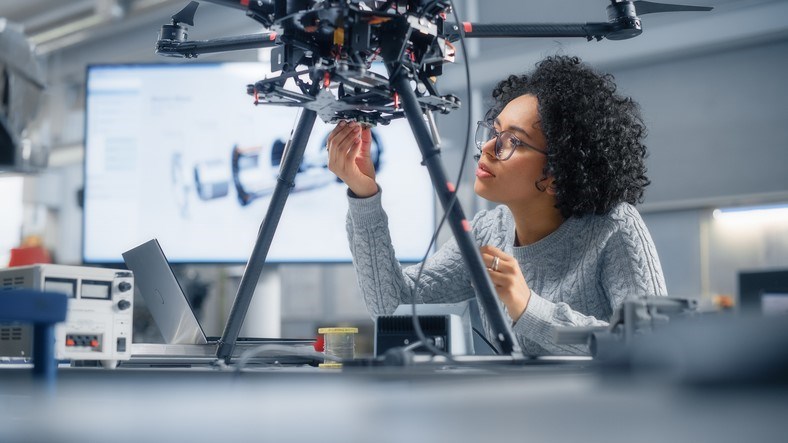In a little over half a year, the world has gone from understanding AI as either an empty promise going back to the 1990s or an overly inflated Hollywood construct, to regarding it as the fastest and most significantly adopted technology in human history.
However, it is important to understand that the ubiquitous AI that we now see being implemented everywhere –often referred to as Generative AI – has been around for years. What’s more, the foundational computer sciences behind it, like machine learning and natural language processing, have been utilised by industries for decades.
Fact Box:
What is the difference between AI and Machine Learning? Artificial intelligence (AI) refers to the broader concept of creating machines or systems that can exhibit human-like intelligence, including tasks such as understanding natural language, reasoning and problem-solving. Machine learning is a subset of AI focused on enabling machines to learn from data and improve their performance on specific tasks without being explicitly programmed. Machine learning algorithms utilise patterns and statistical techniques to automatically learn and make predictions or decisions based on data.It’s important to make this distinction for the context of this article, because it is the latter (machine learning), not the former, that is making the most impact on aviation operations. Later on in this article, our references to how the aviation industry is embracing AI will be in the context of machine learning and predictive modelling.
AI startup growth in aviation
Along with every other industry in the world, the aviation industry is flush with new players looking to make a mark with their 'AI solutions'. One might argue that we are in the midst of a modern-day gold rush, as startups and scale-ups look to capture a tiny nugget of the AI market share.

According to the startup innovation monitoring platform Valuer, 157 new startups focusing on developing AI tools for airlines have been founded since 2019 – with thousands more going back to the mid-00s.
While there is no doubt that the vast majority of these startups won’t make it past seed funding, the volume of new startups in just the aviation industry alone is a testament to the great seachange that is coming.
Let’s look at the airlines
In researching this, the Satair Knowledge Hub wanted to get an overview of how AI is being adopted across the industry. So we reached out to Mario Cappitelli, Satair's Digital Product Owner who works with AI and data-related digital solutions. Mario is someone who has worked with and published several research publications on digital transformation within the aviation industry.
According to Mario, when it comes to airlines, there have been machine learning operations running in the background of daily operations for years. However, what has changed rapidly is the accessibility of those tools.
In the past, you needed a lot of specialists to implement and maintain a AI [machine learning] system. What has changed is that you can buy solutions that utilise machine learning directly off the shelf. Flight route optimisation, fuel saving, predictive analytics – these solutions are much more accessible than they were just a couple years ago.
Mario went on to explain that he thinks that 'Generative AI' has the potential to enhance airline operational efficiency and ensure safety. He explained that by leveraging anonymised post-flight data from databases that encompass aircraft maintenance records and flight paths, generative AI can play a crucial role in identifying irregularities that may jeopardise the well-being of both aircraft and passengers.
AI to take the lion’s share of MRO growth
The road to full digitisation in the MRO industry has been an unfulfilled promise for decades. While the sector has made vast improvements creating digital standardisation through technologies like blockchain and machine learning, it's interesting to assess how the rapid AI boom has influenced the much slower-to-adopt MRO segment.

According to Digital MRO Market by Technology, a report published by Markets and Market, “the artificial intelligence and Big Data analytics segment is estimated to have the largest share of the North American MRO market in 2023.”
However, in our discussion with Mario, he was quick to point out that not everyone in the MRO market is jumping on the AI hype train.
Looking at the landscape, I see large enterprises investing heavily in digital technologies – especially when it comes to AI and so on. However, I also see a lot of smaller and specialised MROs, which don’t have the capacity, investing in the same way. Maybe they lack the IT or the staff, or maybe they just can’t relate to or care about the specific technology. There is still a broad spectrum of adoption in the MRO market.
AI to keep stock of stock
The final sectors in the industry where we want to look harder at AI disruption are near-and-dear to our hearts: procurement and inventory management.
We know that some of the questions that influence the actions of an operator are: “When do I need to do a specific maintenance task?” and “How can I become better at predicting exactly when I will need a specific part, so I can ensure that I have it ready at hand for that maintenance task?”
This is where machine learning and AI have made great strides in recent years by developing prediction models that help remove the problematic nature of maintenance or repairs, thus allowing operators to assess the risk of stocking materials.
On the procurement side, several companies have developed or integrated AI models into their procurement solutions. At Satair we have launched Lilly –which can understand, learn and answer customer quotes and requests.
It is through the likes of Lilly that we can see an obvious example of how the structured information of procurement and inventory management is being filtered through unstructured AI to automate, speed up, and make procurement more accurate and efficient.
What you should take away from this
The impact of AI is changing the world as we know it on an almost daily basis to the extent we will most definitely see more and more implementations of the kind of generative AI that we know from programs like ChatGPT within the aviation industry. But for the foreseeable future it will be the subsets of AI, computer sciences like machine learning, which will have the most significant impact on the industry.
Even the computer scientists developing AI technologies are still not fully aware of the extent of where this technology will take us. But there is no doubt it will be a future that is much grander than we can imagine.